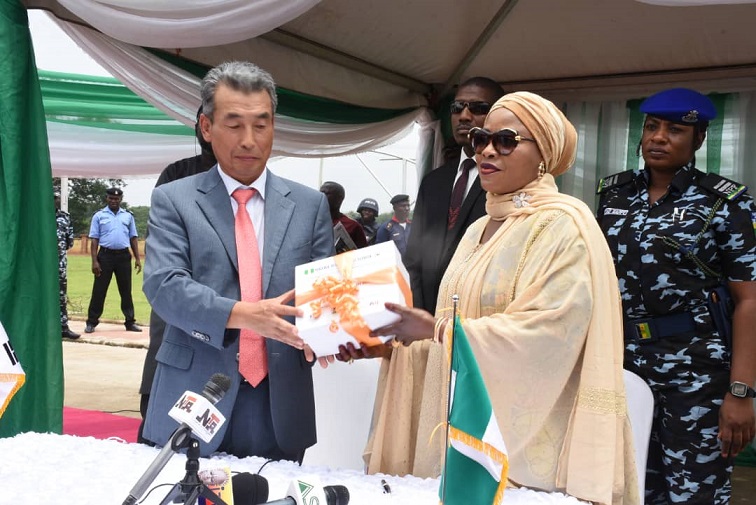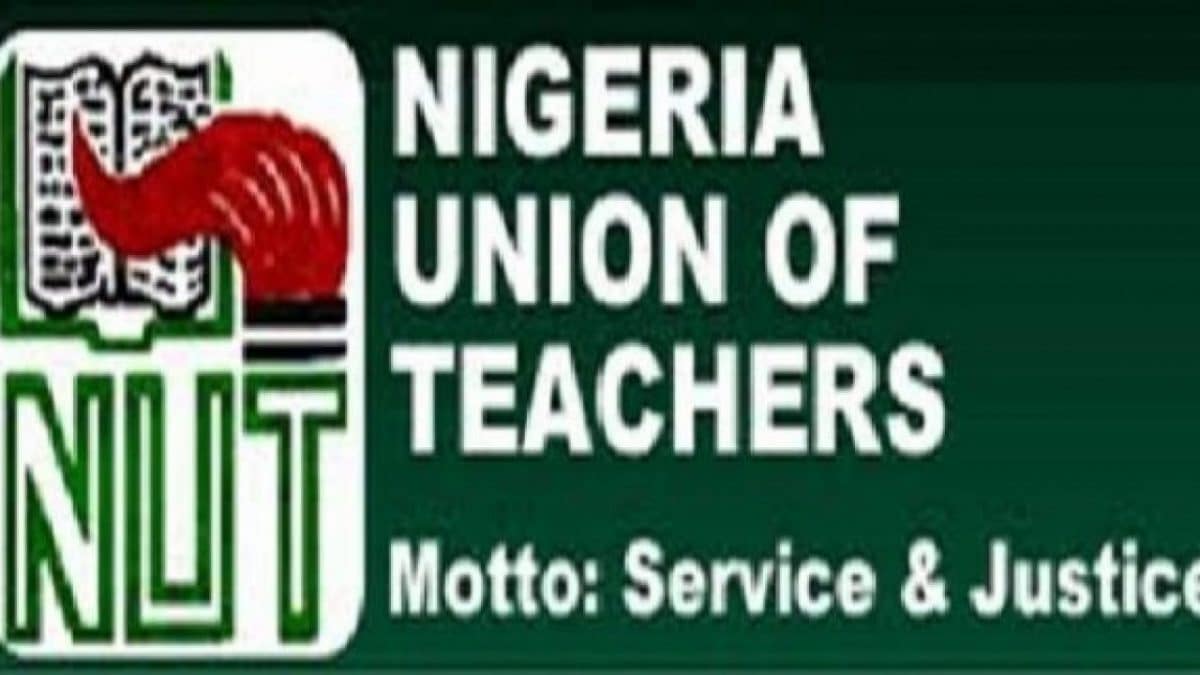Education
South-Korea Hands Over $15m Model School to FCTA

By Laide Akinboade, Abuja
Korea International Cooperation Agency (KOICA), has donated a $15 million model school to the Federal Capital Territory Administration, FCTA.
The Ambassador of the Republic of Korea, Maj.
-Gen. In-Tae Lee (Rtd), during the occasion assured that Korea would not hesitate to continue sharing experiences and assisting Nigeria in strengthening her educational sector and national capacity.Lee further said that the Nigeria-Korea model school is the centre of excellence for multimedia education, saying that in the future the school could be used as a teachers training centre for multimedia education in FCT.
”The multimedia equipment supplied is worth more than 1.3 US dollars and maintenance is essential to ensure the best use of these facilities. ”Today KOICA is handing over all the multimedia equipment and educational resources that have been provided by the Korean Government.”, he said.
FCT Minister, Malam Muhammad Bello, in his remark noted that the establishment of a great educational institution in Nigeria’s Federal Capital City, would help deepen cordial relationship between the Federal Republic of Nigeria and the Republic of Korea.
The Minister who was represented by the FCT Minister of State, Dr. Ramatu Tijjani Aliyu, stressed the value of education in nation building, noting that education was the bedrock of modern societies and the foundation on which great nations were built.
Bello noted that the Nigeria-Korea model school was one of the most sought-after basic education institutions in the Federal Capital Territory, just as he commended the government and people of the Republic of Korea, the Korea International Cooperation Agency (KOICA) and the Universal Basic Education Commission (UBEC) for bringing the project to fruition.
He charged the Primary Education Board to put the facility to effective and efficient use.
Bello also promised that the Administration will expedite construction of the senior secondary component of the school and ensure that it was as aesthetically appealing and academically enriching as its model basic education counterpart.
“Here in the FCT, we have long recognised the capacity of education to provide the most viable route towards the attainment of our nation’s growth objectives. Therefore, the development of the education sector will be given priority in our growth agenda.
“This will involve establishment of new schools, rehabilitation of existing ones, recruitment of teaching staff and of course the training and retaining teachers to keep them abreast of current teaching methods,” he affirmed.
In her remarks, the FCT Minister of State, Dr. Ramatu Tijjani Aliyu, who was represented by the Director of Administration and Finance of the FCT Education Secretariat, Mallam Umar Marafa, stated that the school would no doubt raise the quality of learning and ultimately the quality of life of children in FCT.
According to her, “We want all our children, regardless of tribe, religion or circumstance to achieve their full potential. Our task as an Administration is to make it possible.
“It is on record that since the establishment of diplomatic ties in February, 1980, the Federal Republic of Nigeria and the Republic of Korea have progressively fostered closer and cordial relationship. This is undoubtedly another great leap in the right direction, all thanks to this laudable project by KOICA”.
She, however, appealed to KOICA to replicate the model school in the six geo-political zones across the federation, aimed at deepening the bilateral relationship between Nigeria and Republic of Korea.
Education
UNICAL VC Promises to Resolve Dentistry Students’ Crisis

From Ene Asuquo, Calabar
The Vice Chancellor of the University of Calabar, Prof. Florence Obi has promised that she would do everything humanly possible to ensure that the ongoing crisis in the institution’s Department of Dentistry, is resolved.
Prof.
Obi made the promise in Calabar during a press briefing, stressing that she will resolve the crisis before leaving office.She explained that the problem predates her administration, and pledged to intensify efforts to rectify the crisis.
She added that the crisis was as a result of the Medical and Dental Council of Nigeria (MDCN)’s refusal to induct 2016 Dentistry students of the institution.She also debunked claims circulating on social media that the institution’s Dentistry programme has lost its accreditation, describing the reports as “misinformation and distortion of facts,” clarifying that the programme remains fully accredited and no students have been directed to transfer to other universities.
“At no point did the University ask Dentistry students to seek transfers to other institutions, nor were they advised to ‘go and learn a trade’ as falsely alleged online,” the VC stated.
“I will feel very bad if I leave without solving this problem and the students are left hanging without knowing their fate. I won’t be fulfilled,” she said.
She reaffirmed the University’s commitment to ensuring all Dentistry students graduate and are duly licensed as dental surgeons.
She noted that the Dentistry programme commenced in the 2013/2014 academic session, and in November 2019, the University secured pre-clinical accreditation from the MDCN and full clinical accreditation was subsequently granted in December 2022.
The VC added that the university’s synergy and partnership with the Minister of Education and the Tertiary Education Trust Fund (TETFund) to upgrade its facilities.
“All we asked for is time to engage with other institutions, update the Medical and Dental Council of Nigeria (MDCN), and follow through on due processes,” she noted.
Speaking further, Obi said that some of the affected students demanded to be transferred to the Department of Medicine and Surgery but said it was not the solution as the department was already saturated.
She urged the affected students to remain calm, noting that the university was doing everything possible to resolve the issues before the end of her tenure.
Education
NUT Reaffirms Commitment to Teachers’ Professional Development in Kwara

From Abdullahi Abubakar, Ilorin
The Nigeria Union of Teachers (NUT), Kwara State Wing has restated its commitment to strengthening the professional growth of teachers across the State, to enhance the quality of education delivered in public schools. Speaking at the opening of a three-day capacity-building workshop in Ilorin, the State Chairman of the Union, Comrade Yusuf Wahab Agboola, noted that continuous training of teachers remains a vital component of educational reform and improved classroom delivery.
The training, organised in collaboration with the NUT National Secretariat, is targeted at selected teachers and focuses on the “Study Circle Conveners’ Model”—a grassroots strategy for enhancing peer-to-peer learning and participatory leadership within the education sector.
Comrade Agboola explained that the workshop aims to equip teachers with practical skills in collaborative learning, peer engagement, and innovative teaching practices. He expressed optimism that the training would promote professional bonding among teachers and foster collective solutions to challenges facing the education sector.Also speaking at the event, the National Coordinator of the NUT Study Circle Project, Comrade Solomon Igbelowowa, traced the initiative’s roots to 1985 when it was introduced in Nigeria by the Swedish Teachers Association, having recorded success in Sweden and other parts of the world. He commended the Nigerian Union of Teachers for sustaining the project over the years and urged participants to engage fully and make the most of the training opportunity.
The workshop was officially declared open by the National President of the NUT, Audu Amba, who was represented by the 3rd National Vice President, Bashir Oyewo.
He encouraged teachers to approach the sessions with dedication and punctuality.
Education
JAMB Sets 150 Cut-off Mark for University Admissions

By Tony Obiechina Abuja
The Joint Admissions and Matriculation Board (JAMB) has fixed 150 as the minimum cut-off mark for admission into Nigerian universities for the 2025/2026 academic session.
The decision was reached on Tuesday during the 2025 Policy Meeting on Admissions, held at the Bola Ahmed Tinubu International Conference Centre in Abuja, with stakeholders from various tertiary institutions in attendance.
According to JAMB, 140 was approved as the minimum score for colleges of nursing sciences, while polytechnics, colleges of education, and colleges of agriculture will admit candidates with a minimum score of 100.
“The minimum admissible scores for admissions for the next academic session have been fixed at 150 for universities, 100 for polytechnics, 100 for colleges of education, and 140 for colleges of nursing sciences by the stakeholders (Heads of Tertiary Institutions),” JAMB announced via its official X account.
























